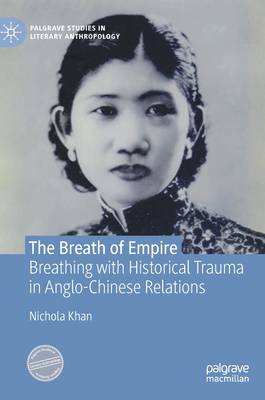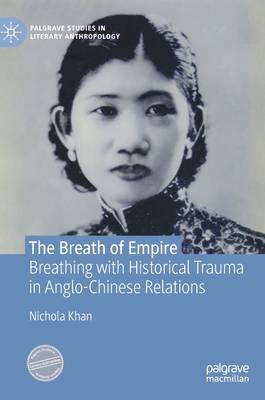
- Afhalen na 1 uur in een winkel met voorraad
- Gratis thuislevering in België vanaf € 30
- Ruim aanbod met 7 miljoen producten
- Afhalen na 1 uur in een winkel met voorraad
- Gratis thuislevering in België vanaf € 30
- Ruim aanbod met 7 miljoen producten
Zoeken
€ 76,45
+ 152 punten
Omschrijving
This Palgrave Pivot combines anthropological, biographical and autoethnographic perspectives onto imperial intimacies, the transgenerational transmission of colonial and familial trauma, and violence in two kinds of household: the Chinese family in British Hong Kong and wider imperial Asia, and the Anglo-Chinese family in England. Conjoining approaches from literary anthropology, the historiography of Anglo-Chinese relations, and perspectives on colonial trauma, it highlights the relative neglect of women's stories in customary Chinese readings, colonial accounts, and an ancestral family record from 1800 to the present. Offering an alternative view of family history, this book links the body as a dwelling for assaults on the ability to breathe--through tuberculosis, opium smoking, asthma, and panic--with the physical home that is assaulted in turn by bombs, killing, intimate betrayals, and fatal respiratory illness. The COVID-19 "pandemic of breathlessness" serves as mnemonic both for state repression, and for the reprisal of historical fears of suffocation and dying. These phenomena converge under an analytic concept the author calls respiratory politics.
Specificaties
Betrokkenen
- Auteur(s):
- Uitgeverij:
Inhoud
- Aantal bladzijden:
- 129
- Taal:
- Engels
- Reeks:
Eigenschappen
- Productcode (EAN):
- 9783031176890
- Verschijningsdatum:
- 20/11/2022
- Uitvoering:
- Hardcover
- Formaat:
- Genaaid
- Afmetingen:
- 148 mm x 210 mm
- Gewicht:
- 335 g

Alleen bij Standaard Boekhandel
+ 152 punten op je klantenkaart van Standaard Boekhandel
Beoordelingen
We publiceren alleen reviews die voldoen aan de voorwaarden voor reviews. Bekijk onze voorwaarden voor reviews.








